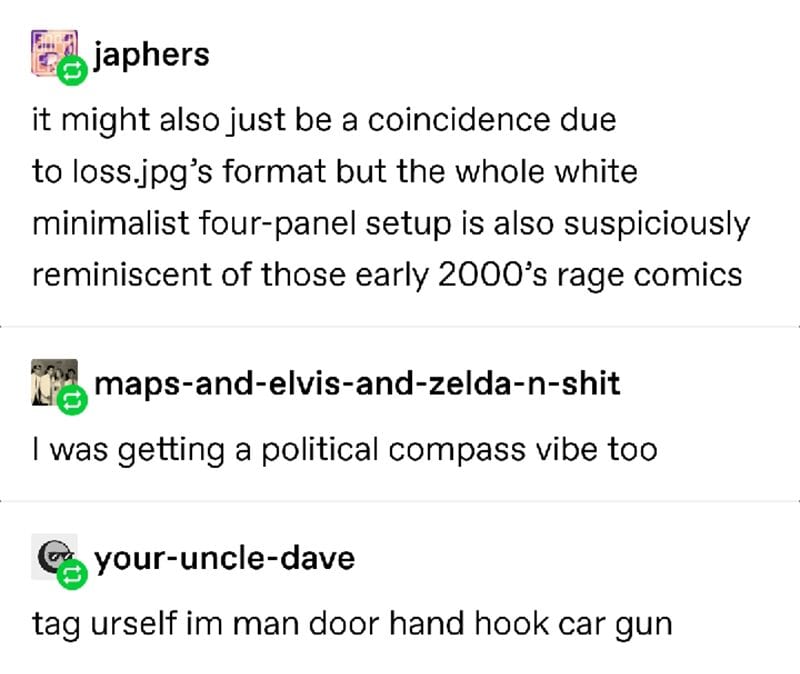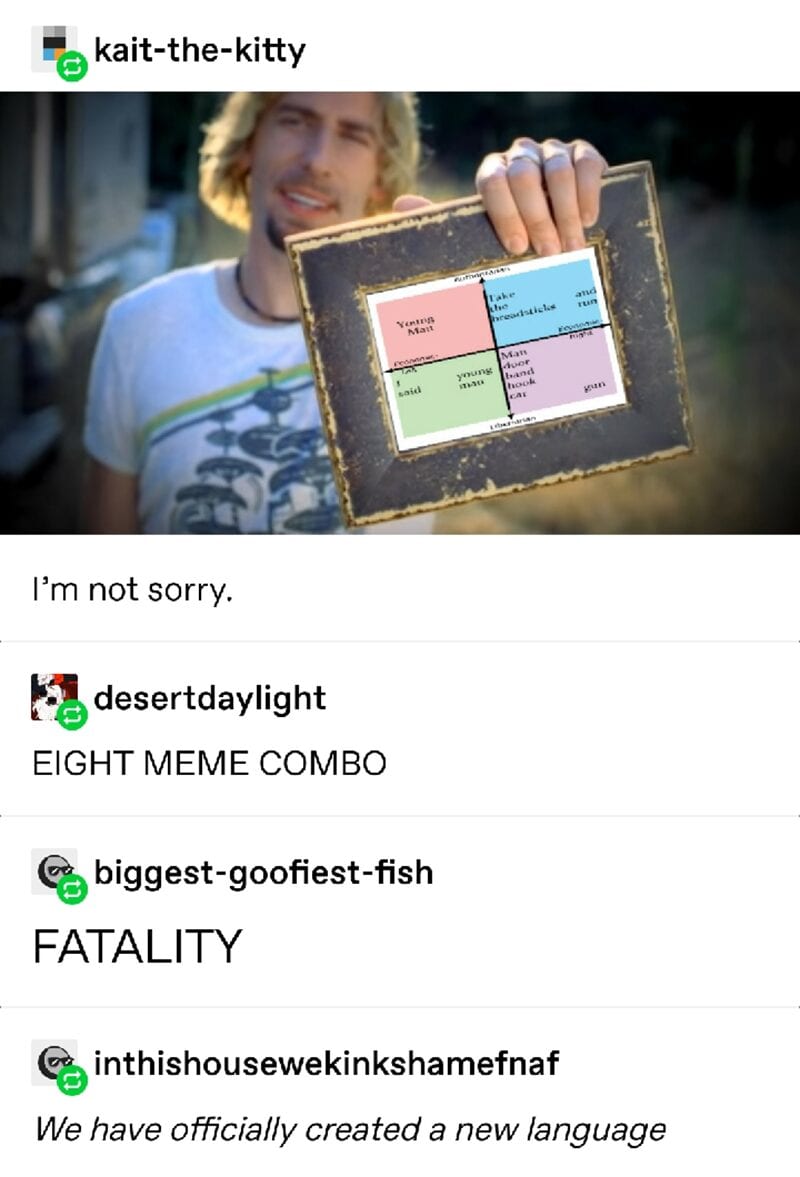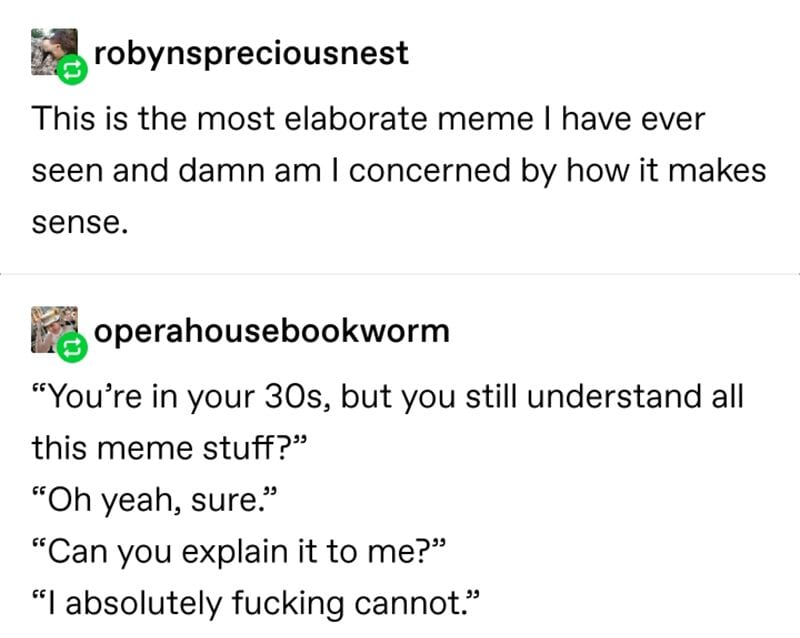“Meme” is a relatively new word in the English language, but not as new as you might think. It was coined by Richard Dawkins in his 1976 book The Selfish Gene. Dawkins is a biologist, and he combined the Greek word mimeme (“something imitated”) with the English word gene (as in genetics) to make an argument that ideas spread and mutate in pretty much the same sorts of patterns that genes do.
And thus we now call the weird image formats and their endless variations that we spread around the internet all day “memes.” It’s actually pretty fascinating once you dive into it. And, just like slow changes in genetics eventually give you an animal that looks totally different from its ancestor, so do memes evolve and combine into forms which, for the uninitiated, look like absolute gibberish.
One Tumblr thread took this concept to the brink of madness, starting with one perplexing grid meme:
There are three types of people: those who look at this meme and absolutely get it, those who get parts of it, and those who wouldn’t be able to work it out with a gun to their head.
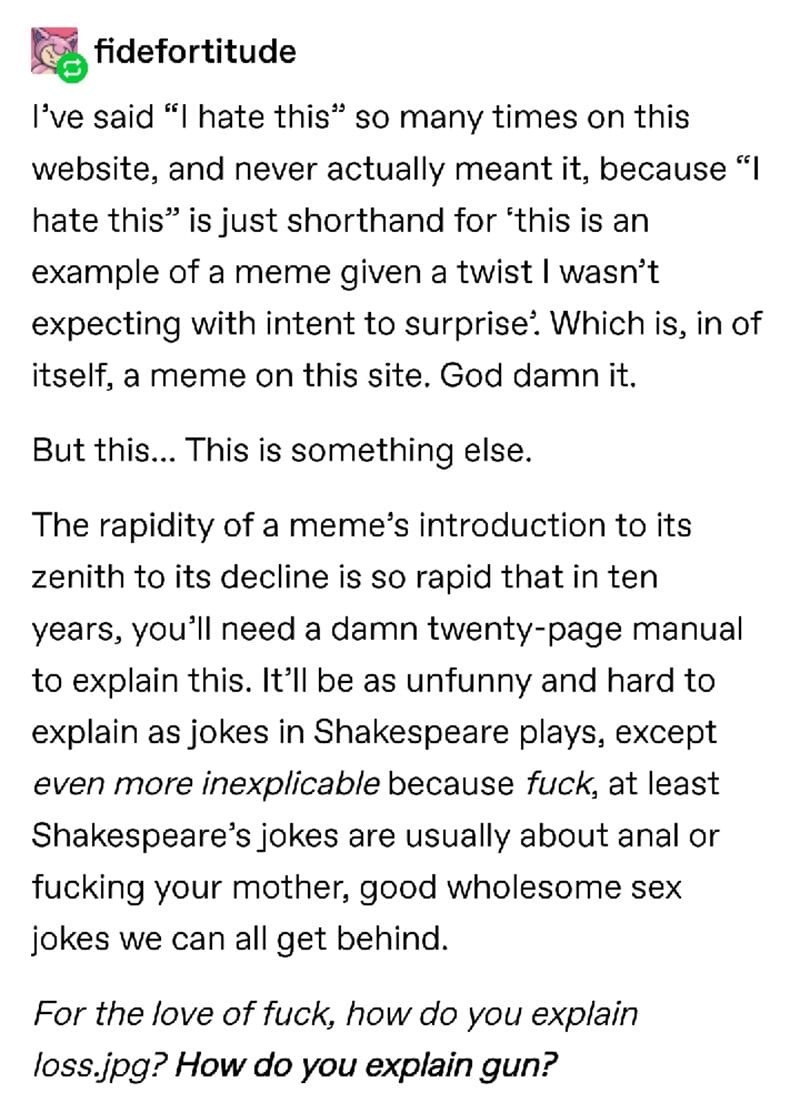
Source: fidefortitude on Tumblr
Comedy is inherently cultural; what you find funny is going to depend on what’s been going on around you, and what references and language you understand.
Meta-memes may not be as revered as Shakespeare, but they do both share that issue.
At this point, I feel like I’m back in college being asked to dissect all the literary influences and allusions in some poem.
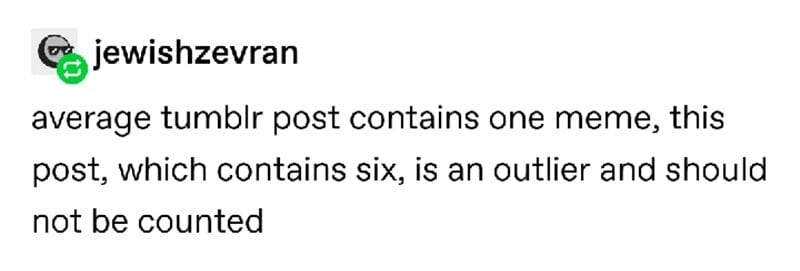
Source: jewishzevran on Tumblr
But the meta madness didn’t end there.
Users soon started to see similarities to other formats not yet explicitly mentioned.
Political compass memes map out political leanings and where various attributes fall on that map, usually with fictional characters from a franchise or some other well-known set of items.
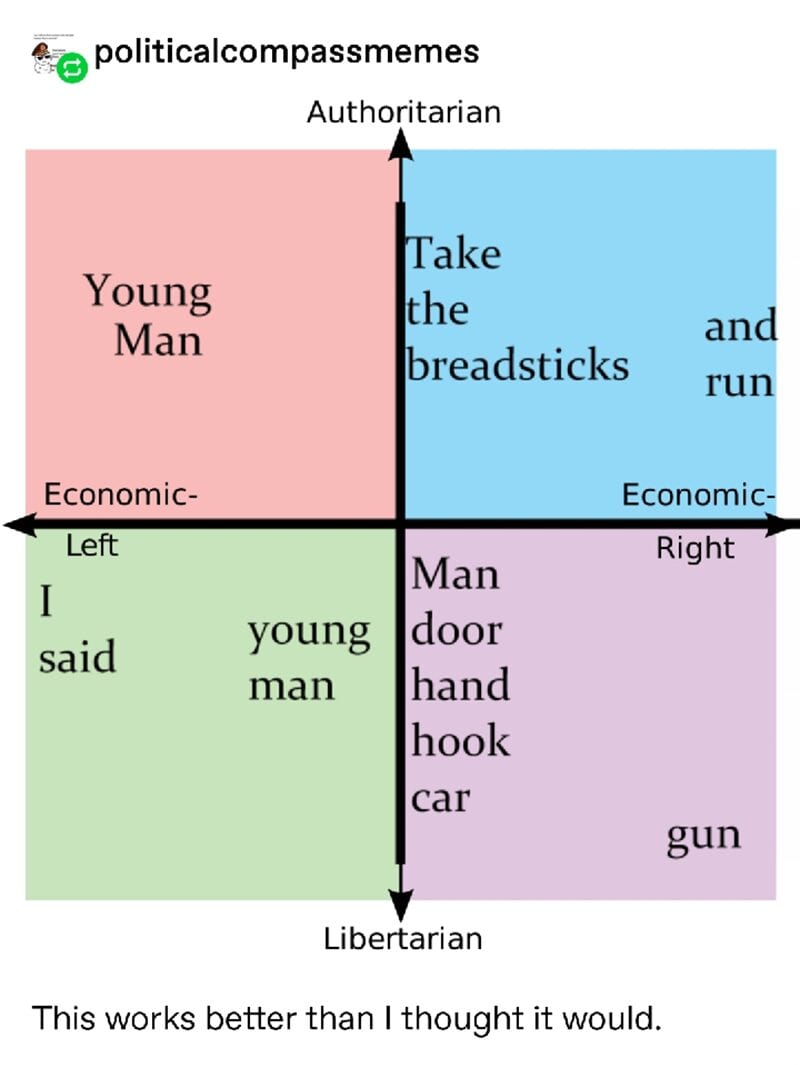
Source: politicalcompassmemes on Tumblr
And now that it’s not just a grid, but a graph, we are legally allowed to stick it in the Nickleback “look at this graph” format.
All bets are off from there. Many meme formats are presentational, with a concept being framed by a character.
Insert meme as concept presented, rinse, and repeat endlessly.
And if you want to present lots of different iterations of something in one meme, you can’t beat the galaxy brain format.
Now it’s all starting to get to be too much.
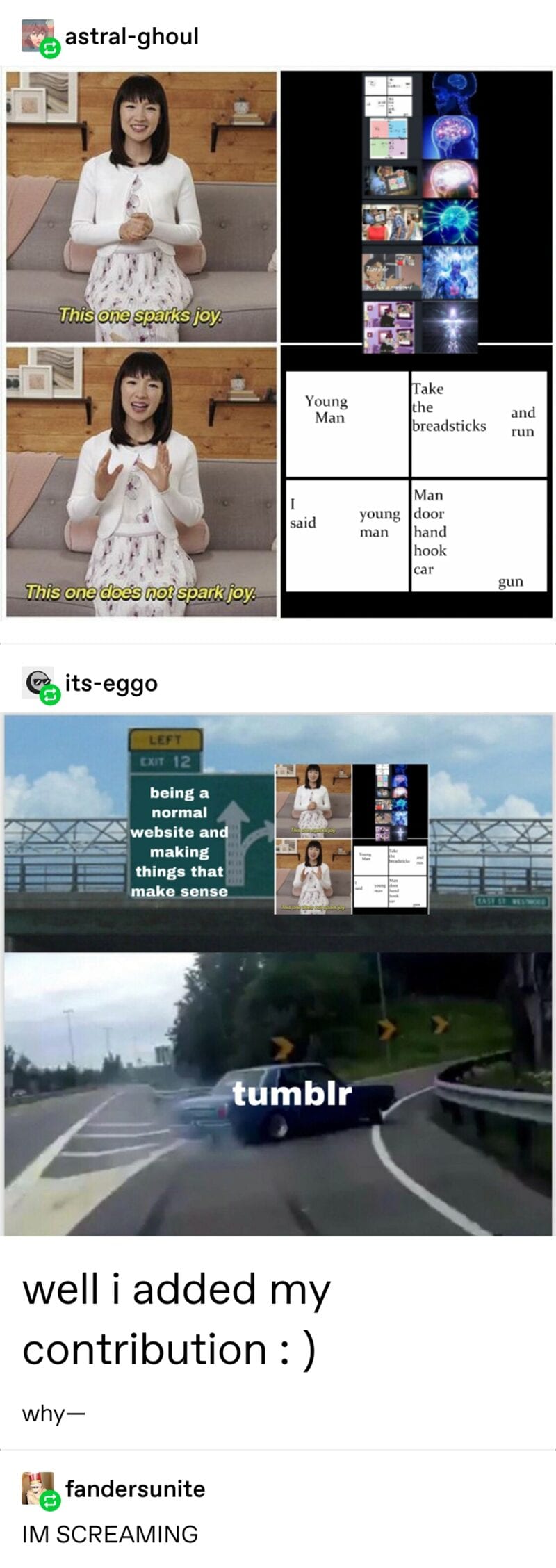
Source: astral-ghoul/its-eggo on Tumblr
Eventually, the meme-ception has to come to an end as resolution of the original becomes too small to see.
Some smart internet scientist should make a name for that principal.
This all makes me wonder: 10 or even 5 years from now, will there be many of us who could look at these memes without prompting and be able to explain what any of it means?
I know one thing for sure, if the aliens show up and insist on understanding this, they’ll never speak to us again.
What’s your favorite meme format?
Tell us in the comments.



